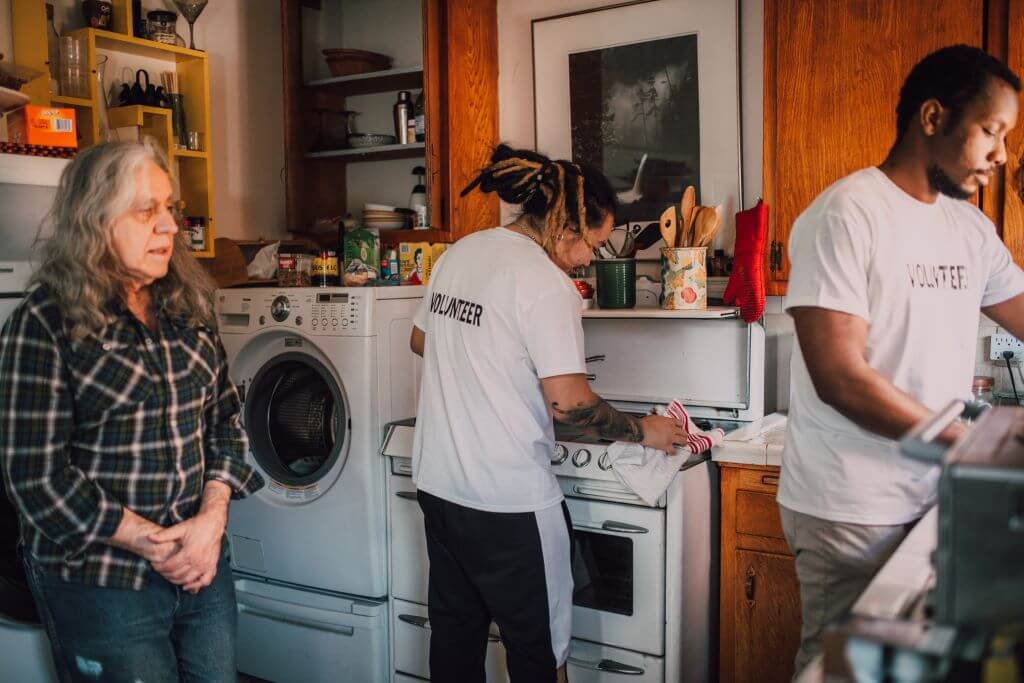As people age, some will inevitably need more frequent and regular doctor visits and more tests and medications to manage their health conditions. According to data from the World Health Organization, the global average life expectancy increased by 6.6 years from 66.8 to 73.4 between 2000 and 2019. In 1950, this was just over 56 years.
The numbers make it quite clear that people are living a lot longer, but it also means that there are a lot more older people. This has brought age-related health issues to the fore, so we’re much more aware of them nowadays than 50 years ago. We might not immediately realize, though, that more and more older people are facing more complex and chronic health issues that require medical attention and treatment and they may not always be up to the challenge.
For a caregiver, this can also be a challenging and stressful situation. How do you ensure your patient gets the best possible outcome from their doctor visits and follows their prescribed medication regimen correctly? How can you avoid mistakes, misunderstandings, and miscommunication that could compromise their health and well-being? Well, let’s have a look.
Keeping track of multiple appointments and tests
Older people may have to see different doctors for different health conditions, such as a cardiologist for their heart, an endocrinologist for their diabetes, or a neurologist for their dementia. They may also have to undergo various tests and procedures, such as blood tests, X-rays, or scans. Keeping track of all these appointments and tests can be complicated and confusing, especially if scheduled at different locations and times.
Use a calendar or planner to record all your patient’s appointments and tests. Include the date, time, location, doctor’s name, and purpose of each visit or test to avoid any last-minute confusion. If you use a paper calendar, keep it in a prominent place where you can see it every day.
Set reminders or alarms to avoid missing or forgetting any appointments or tests. You can use your phone, computer, or a device like Alexa or Google Home to help you with this.
Confirm appointments and tests with the doctor’s office a day or two before they are due to verify details and check if there are any changes or cancellations.
Where necessary, arrange transportation for your patient well in advance. If your patient uses a wheelchair or walker, ensure that the vehicle can accommodate the device.
Prepare a bag with everything your patient may need for their appointments or tests, such as their insurance card, identification card, medication list, medical records, test results, questions for the doctor, snacks, water, books, magazines, etc.
Communicating effectively with the doctor
Older people may have trouble communicating with their doctor for various reasons, such as hearing loss, cognitive impairment, language barrier, cultural difference, or anxiety. They may be unable to hear or understand what the doctor is saying, express their symptoms or concerns clearly, ask relevant questions, or follow the doctor’s instructions properly.
Accompany your patient to their appointments whenever possible. You can act as their advocate and interpreter, ensuring they get the information and care they need.
Before the appointment, write down the questions your patient wants to ask the doctor. Prioritize them and ask the most important ones first.
Listen carefully to what the doctor is saying during the appointment and take notes if necessary. If the doctor agrees, you can also record the conversation with your phone or a voice recorder. Repeat what you heard to confirm that you understood correctly. Ask for clarification if something is unclear or confusing.
After the appointment, review what the doctor said with your patient and ensure they understand what they need to do next.
Managing multiple medications
Many older people take multiple medications for different health conditions at various times during the day. This can be complicated and confusing, especially if they have memory problems or cognitive decline. Taking medication incorrectly, skipping or doubling doses, or mixing up pills can have disastrous consequences.
Get organized by making a list to keep track of all the medications your patient is taking, including names, dosages, frequencies, purposes, and prescribers. Also, use a pill organizer to sort and store your patient’s medications according to the day and time they must take them.
Review medications regularly with your patient’s doctor and pharmacist to ensure they’re still necessary, effective, and safe. Ask about potential interactions, side effects, or alternatives you should be aware of. Report any problems or concerns you or your patient have with the medications.
Coping with emotional and psychological issues
Older people may experience confusion, anxiety or other emotional and psychological trauma due to their health conditions. These issues can interfere with their ability to follow their doctor’s advice and manage their medications properly.
Be supportive and empathetic to your patient’s feelings and needs. Listen without judging or criticizing. Validate their emotions and acknowledge their challenges. Be optimistic about your patient’s health and future. Remind them of their strengths and achievements. Praise them for their efforts and progress. Help them set realistic and attainable goals and celebrate their successes.
Be proactive and preventive about your patient’s mental health. Help them maintain a healthy lifestyle that includes regular physical activity, balanced nutrition, adequate sleep, social interaction, and mental stimulation. Find activities they enjoy that give them a sense of purpose and meaning. Help them cope with stress and relax using techniques like breathing exercises, meditation, yoga, music, art, etc.
Be alert and responsive to any signs of mental distress or disorder in your patient. If you notice any changes in their behavior, mood, personality, or cognition, talk to them about it and seek professional help.
Conclusion
Caring for an elderly patient who needs frequent doctor visits and multiple medications can be daunting and demanding. However, it can also be rewarding and meaningful. At LL Medico, we understand the sacrifices you make. We appreciate your mental and physical burden and we would gladly support and assist you in any way we can. For all your senior care needs, whether adult diapers, mobility devices, nutritional supplements or personal care items, LL Medico strives to supply the best products at the best prices.
Remember, you are not just a caregiver. You are a partner, a companion, a friend, and a family member to your patient. You are making a difference in their life and the world. You are doing something that matters. Remember also that this noble journey does not have to be a solo one. When the going gets tough, there is help if you acknowledge it. And finally, a problem shared is a problem halved.






 855-422-4556
855-422-4556 Chat
Chat E-Mail
E-Mail Monday - Friday 9:00AM to 5:00PM EST
Monday - Friday 9:00AM to 5:00PM EST






 Shopping With LL Medico
Shopping With LL Medico



 855-422-4556
855-422-4556